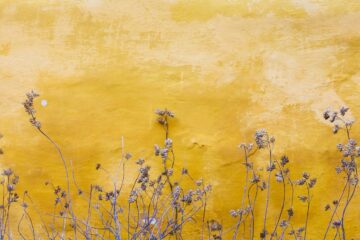The God of Mozambique Elephants
It was an aha moment: largest land mammal with overgrown teeth. I fancied tusks as bone fide majesty, not as billiard balls or opium pipes. Tusklessness arose as an asylum. What is a handicap, anyhow? The ability to debark trees? To upwell water to gasping riverbeds? To caress our young? At night I lie awake and listen to the subsonic rumbles of your repartee, the tremor of hallelujah in every step.
The God of Olms
Do not confuse an olm and a psalm: one is a human fish, the other a hymn. Psalm 148:7: Praise the Lord from the earth, you dragons, and all deeps. An olm is a cave dragon, distinct from an om—that sacred sound. Om and olms share a universe beyond the sun. A century slips past in a syllable. Olm, let your eyes regress in primordial darkness; let the world see through you. Breathe in through your lucent pink gills. Breathe out through the cathedral of your larval body.
The God of Coconut Octopuses
I’m setting the record straight: the plural is octopuses and coconuts are not a nut but a fibrous drupe. A drupe is a stone fruit in the genus Prunus, like an olive or an apricot, except when a stone fruit is, in fact, an octopus. A tool is an instrument held in a hand. Or in this case, a muscular hydrostat. Stilt-walk the seafloor in the stolen husk of a not-nut. Hold on to your own portable fortress. We measure intelligence by the manipulation of objects: to open a jar and dissolve in it. Illusion is an atrophied muscle. Unfurl. Let your brain escape into the nebulous space of the body.
Keats Conley is a biologist from Idaho. Her first book of poems, Guidance from the God of Seahorses, won the Wandering Aengus Book Award and is forthcoming from Green Writers Press. Her poems have been published in journals such as Arkana, Animal, The Curlew, and saltfront.

